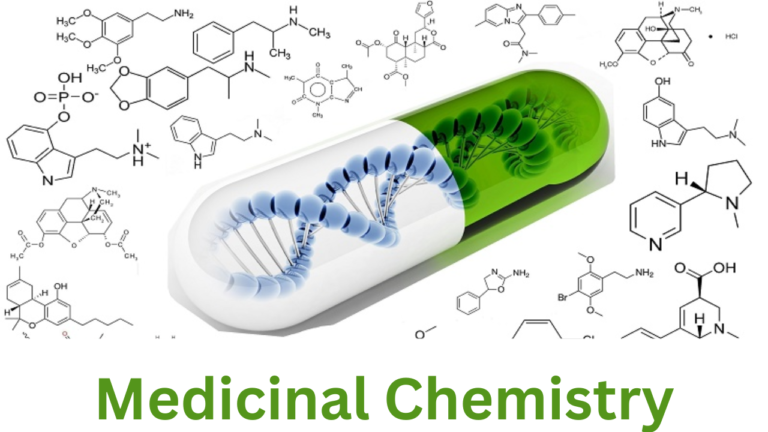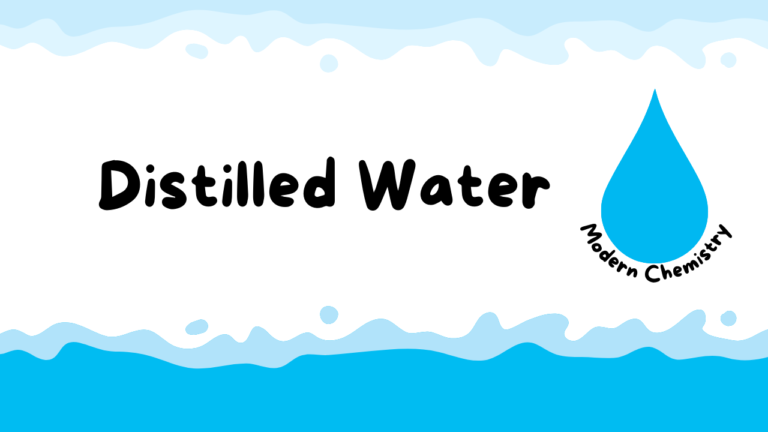What is Theoretical Chemistry?
Theoretical chemistry is a captivating field where science meets imagination. It allows chemists to use mathematical models and computer simulations to predict and understand the molecular dynamics that govern the physical world. Unlike experimental chemistry, where reactions are observed and analyzed in the lab, theoretical chemistry offers a digital lens through which scientists can explore and manipulate molecular interactions in virtual environments. This method is crucial in advancing our knowledge of chemistry, as it allows for the exploration of hypotheses and theories that are beyond the scope of traditional laboratory techniques.
The Foundations of Theoretical Chemistry
At its core, theoretical chemistry relies on the fundamental principles of quantum mechanics, thermodynamics, and statistical mechanics to investigate the properties of molecules. These scientific theories provide the framework for understanding the stability, reactivity, and physical properties of chemical systems at an atomic level. This knowledge is essential for a wide range of applications, from drug design and material science to environmental protection and nanotechnology.

Quantum Mechanics: The Heartbeat of Molecules
Quantum mechanics is indispensable in theoretical chemistry as it explains the behavior of particles at the smallest scales. At these microscopic levels, the classical laws of physics cease to apply, and new rules describe how atoms and electrons interact. These interactions are pivotal in determining everything from the bonding of atoms to form molecules to the color of materials and the behavior of electrons in electronic devices.
Computational Chemistry: Simulating the Molecular World
Computational chemistry is one of the main tools of theoretical chemists. It involves using computers to solve the mathematical equations of quantum mechanics and to simulate the physical movements of molecules. These simulations help scientists visualize molecular processes in real-time, providing insights into complex chemical reactions, enzyme actions, and drug interactions with body tissues. This capability not only enhances our understanding of fundamental chemistry but also accelerates the development of new technologies and treatments.
Cheminformatics: Managing a Sea of Data
Cheminformatics combines chemistry with computer science to manage and analyze vast amounts of chemical data. In theoretical chemistry, it plays a critical role by providing tools to organize, search, and analyze data on molecular structures, properties, and interactions. This branch of chemistry is particularly valuable in pharmaceuticals and materials science, where researchers can use these tools to discover new drugs and materials more efficiently than ever before.
Energy Landscapes and Chemical Reactions
In theoretical chemistry, understanding the energy landscape is essential for predicting the course of chemical reactions. By mapping out how energy varies with molecular configurations, chemists can pinpoint the most stable arrangements of atoms and the transition states they must pass through during reactions. This information is crucial for designing catalysts that can speed up, slow down, or alter the outcome of chemical reactions.
The Power of Software in Theoretical Chemistry
Advanced software tools are the backbone of theoretical chemistry. These programs can perform complex calculations that predict the electronic structure of molecules, simulate their dynamics, and visualize chemical reactions. Tools like Gaussian, ChemDraw, and Spartan are used extensively for these purposes, enabling chemists to experiment in silico before synthesizing compounds in the lab.
Material Science Innovations
The predictive power of theoretical chemistry is particularly evident in materials science. Here, chemists use theory to design materials with specific properties needed for applications such as electronics, aerospace, and sustainable technologies. By understanding how atoms interact at the molecular level, they can create materials with unprecedented performance and functionality.
Pharmaceutical Breakthroughs Through Theoretical Chemistry
Theoretical chemistry is revolutionizing the pharmaceutical industry by allowing for the precise design of drugs. Through molecular modeling, chemists can predict how different substances will interact with biological targets, potentially reducing the time and cost associated with drug development. This approach helps in identifying promising candidates early in the drug development process, significantly improving the efficiency of discovering new therapies.
Environmental Chemistry: Cleaning Up with Theory
Theoretical chemistry also offers solutions to environmental issues. By understanding chemical processes at the molecular level, chemists can design catalysts and processes that minimize pollution and are more environmentally friendly. These theoretical studies are vital for developing technologies that can effectively tackle air and water pollution, offering cleaner alternatives to traditional industrial practices.
Overcoming Complex Challenges
Despite its potential, theoretical chemistry faces significant challenges, primarily due to the complexity and size of the systems it studies. The accuracy of theoretical predictions depends heavily on the computational power available, as well as the sophistication of the mathematical models used. As technology advances, however, these challenges become more manageable, allowing theoretical chemists to explore increasingly complex systems.
The Future Landscape of Theoretical Chemistry
The future of theoretical chemistry is bright, driven by continuous advancements in computational technologies and algorithms. These developments are expanding the frontiers of what is possible, enabling scientists to tackle problems that were once deemed intractable. As computational power grows, the scope and accuracy of theoretical investigations will only increase, promising new discoveries and innovations across multiple scientific fields.
The Impact of Theoretical Chemistry on Everyday Life
The influence of theoretical chemistry extends far beyond the confines of scientific research. It plays a critical role in the development of new materials, energy sources, and medical treatments that enhance the quality of life across the globe. From the batteries that power our smartphones to the medications that keep us healthy, theoretical chemistry contributes to many facets of modern life.
Educational Role of Theoretical Chemistry
Theoretical chemistry plays a significant role in education, serving as a bridge between abstract scientific concepts and tangible understanding. By providing a visual and interactive way to explore chemical behaviors and reactions through simulations, it makes complex theories more accessible and engaging for students. This educational approach not only deepens understanding but also inspires future generations of scientists. It fosters critical thinking and problem-solving skills that are essential in many scientific disciplines, equipping students with the tools they need to explore and innovate in their future careers.
Collaborative Frontiers in Theoretical Chemistry
In the modern scientific landscape, theoretical chemistry often acts as a collaborative hub, connecting chemists with physicists, biologists, and engineers. This interdisciplinary approach enhances the depth and scope of research, allowing for a more comprehensive understanding of complex scientific problems. Collaborations in theoretical chemistry lead to the development of new methodologies and technologies that push the boundaries of what is scientifically possible. These partnerships are crucial for tackling global challenges, from developing sustainable energy solutions to understanding the fundamental mechanisms of life and disease.
The Role of Artificial Intelligence in Theoretical Chemistry
Artificial Intelligence (AI) is revolutionizing theoretical chemistry by automating complex calculations and data analysis, significantly accelerating the pace of discovery. AI algorithms can predict molecular properties and reaction outcomes with high accuracy, often much faster than traditional computational methods. This integration of AI with theoretical chemistry not only enhances the efficiency of research but also opens up new avenues for exploring chemical space that were previously considered too vast or complex to tackle with human capabilities alone.
Sustainability and Green Chemistry
Theoretical chemistry contributes significantly to the field of green chemistry, which focuses on designing products and processes that minimize or eliminate the use and generation of hazardous substances. By simulating chemical reactions at the molecular level, theoretical chemists can identify more sustainable pathways and create less toxic compounds. This proactive approach is essential for reducing environmental impact and supporting sustainable development, aligning chemical innovations with ecological considerations.

The Influence of Theoretical Chemistry on Industry
The insights gained from theoretical chemistry are invaluable to various industries, driving innovation in sectors like manufacturing, energy, and biotechnology. For instance, in the semiconductor industry, theoretical models help in the design of materials with optimal electronic properties for better performance. Similarly, in the energy sector, theoretical studies inform the development of more efficient catalysts for fuel production and energy storage solutions, contributing to more sustainable energy systems.
Challenges and Ethical Considerations
As theoretical chemistry continues to advance, it also faces ethical considerations, particularly regarding the potential impacts of new chemicals and materials on health and the environment. The ability to design molecules and materials with specific properties must be balanced with responsible stewardship to ensure safety and sustainability. Moreover, the increasing reliance on computational methods raises questions about data security and the integrity of scientific research, making ethical guidelines and standards ever more important in guiding the responsible use of these powerful technologies.
Conclusion
- Expanding Knowledge: Theoretical chemistry allows us to explore and manipulate molecular interactions on a digital stage, enhancing our understanding and capabilities in the physical world.
- Innovative Tools: With powerful computational tools, theoretical chemists can predict molecular behavior and outcomes with increasing precision.
- Practical Applications: From creating new materials to designing effective drugs, theoretical chemistry is at the forefront of technological and medical innovation.
- Future Prospects: As computational methods evolve, the potential for groundbreaking research and applications in theoretical chemistry continues to grow.
Theoretical chemistry is not just about understanding the world at the molecular level; it’s about using that knowledge to make tangible improvements in technology, healthcare, and environmental sustainability. It represents a crucial link between theoretical knowledge and practical application, driving progress in countless scientific and industrial domains.






